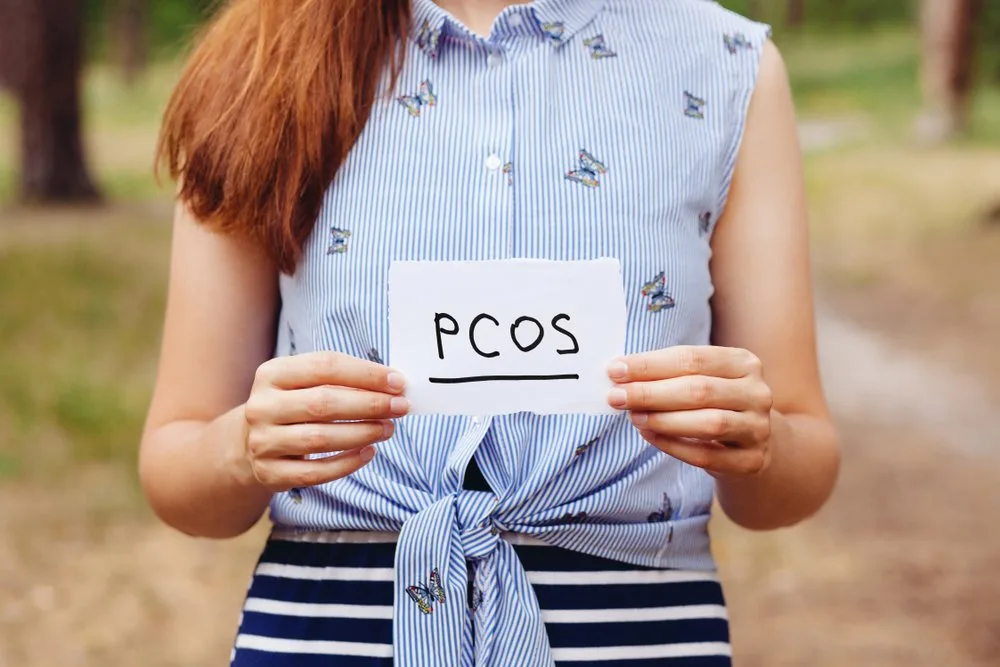September is PCOS Awareness Month – a month dedicated to raising awareness and educating the public on this common condition. Polycystic ovary syndrome (PCOS) is a genetic, hormone, metabolic and reproductive disorder that affects women and girls of reproductive age. It is the leading cause of infertility in women.
What is PCOS?
PCOS starts with a reproductive hormone imbalance, which leads to the development of small cysts (sacs of fluid) along the outer edge of the ovary. These cysts are filled with immature eggs called follicles. These eggs may not develop as they should, or they may not be released during ovulation as they should, leading to a host of symptoms and complications.
Despite it affecting around 1 in 10 women, the condition is still one of the most under-diagnosed conditions around. So much so that, of those who have it, only 1 in 3 will be diagnosed. In short, there’s a fair chance you might have it – and a good chance you don’t realize it!
Could I have PCOS?
PCOS tends to fly under the radar because the signs can be easy to miss or attributed to something else. In fact, some of the symptoms are so common that you’d be excused for thinking they were just part of your hormonal cycle (think regular breakouts, for example).

It’s important to be aware of the condition and its symptoms, especially since getting the right treatment can be life-changing.
While there is no “cure”, there are ways to treat PCOS so that those who have it can overcome their symptoms as well as prevent or reduce their risks of developing related diseases such as diabetes, obesity, and endometrial cancer.
PCOS symptoms to look out for
1. Infertility
The average woman can expect to release around 300 – 400 eggs to be ovulated over their lifetime, but not all of these will ripen and mature. Commonly, with PCOS there is an imbalance in female sex hormones, which may prevent the development and release of mature eggs. Without a mature egg, ovulation, as well as pregnancy, cannot occur.
2. Irregular periods
Because PCOS affects ovulation, and its sufferers may not necessarily ovulate every month, some may experience irregular periods. With PCOS it is common to have periods that are more than 35 days apart, and it is also common for periods to last longer than they typically should.
3. Excess facial and body hair
Hirsutism – a condition among women in which they experience excessive hair growth in a male-like pattern – is a common symptom. Women may notice dark hair growth on their faces, chest, and back. This excess hair growth arises from excess male hormones androgen and testosterone.
4. Weight gain
PCOS makes it more difficult for the body to use its insulin hormones to convert sugars and starches from foods into energy. This is known as insulin resistance, and it can cause insulin and sugar to build up in the bloodstream, which, in turn, can lead to increased production of the male hormone androgen – a common cause of weight gain. PCOS sufferers may also struggle to lose weight.
5. Acne
When you have PCOS, you are likely to have high levels of the hormone androgen (known as hyperandrogenism).
![Acne [longevitylive]](https://longevitylive.com/wp-content/uploads/2019/06/acne-1606765_1920-620x413.jpg) Hyperandrogenism causes the glands in the skin to produce an excess of oil (sebum), which can lead to clogged pores and inflammation – hello, acne!
Hyperandrogenism causes the glands in the skin to produce an excess of oil (sebum), which can lead to clogged pores and inflammation – hello, acne!
6. Anxiety and depression
According to Healthline, studies indicate that between 27% and 50% of women who suffer from PCOS report experiencing feelings of depression and anxiety, compared to around 19% of women who do not have PCOS. There are various reasons for this: depression is often linked to insulin resistance, stress, inflammation, and to obesity – all of which are linked to PCOS.
The bottom line
If you suffer from any of these symptoms, or you suspect you might have PCOS, book an appointment with your doctor to get a diagnosis. Should it turn out to be PCOS, they will advise the best treatment plan for you, which may include lifestyle changes and medication.
If you discover that you have PCOS, know that you’re not alone. There are lots of ways you can treat it, whether it’s via natural methods or through the use of supplements. These methods have helped ease the PCOS symptoms of hundreds of women around the globe, so why shouldn’t you be one of them?
The above content has been provided by Lamelle Research Laboratories.





![women [longevity live]](https://longevitylive.com/wp-content/uploads/2020/01/photo-of-women-walking-down-the-street-1116984-100x100.jpg)









